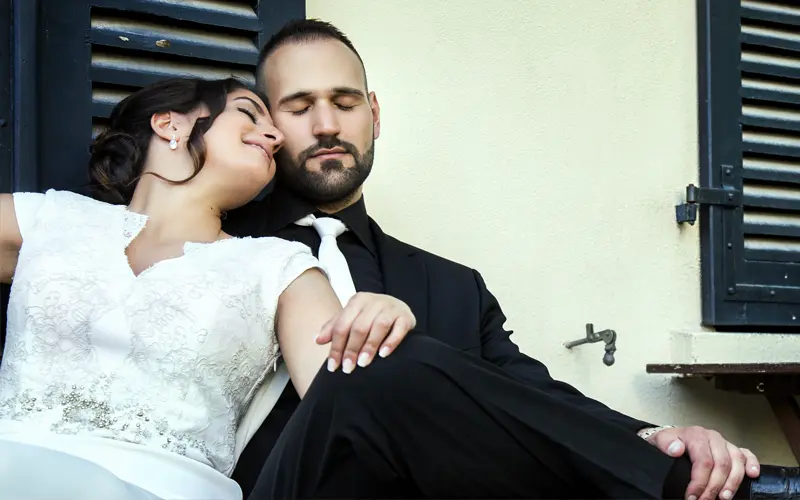Fiancé Visa Attorneys
BOOK 30 MINUTE CONSULTATION HERE
($150 Consultation Fee)

What is a Fiancé (K-1) Visa?
Thanks to a popular reality show, many people have heard about Fiancé (or K-1) visas, in which a U.S. citizen can sponsor a foreign citizen as their fiancé from another country. A fiancé visa lawyer can help guide U.S. citizens and their foreign citizen partners through the application process. Hiring a lawyer typically reduces the stress involved in navigating the fiancé visa process.
Due to the internet and ease of travel today, the likelihood of finding love overseas is not that farfetched. You can meet someone from anywhere in the world on a dating website and, increasingly, people do. An estimated 366 million people worldwide use dating websites to meet potential partners (25 Online Dating Statistics, Facts & Trends for 2023 – cloudwards.net).
After the arrival of a fiancé(e) from overseas, the couple has only 90 days in which to marry before the K-1 visa expires. After marriage, the holder of the K-1 visa must apply for a marriage based green card.
A green card is also known as a permanent resident card. This identity document is granted by the United States Citizenship and Immigration Services department (USCIS) to show that an immigrant has permanent residency status.
BOOK 30 MINUTE CONSULTATION HERE
($150 Consultation Fee)
CONTACT US

Am I eligible for a Fiancé Visa?
In order to qualify for a K-1 visa, the following criteria must be met:
-
The fiancé has to be sponsored by a partner who is a United States citizen. The U.S. citizen is the citizen petitioner. Lawful permanent residents or legal permanent residents (green card holders) cannot sponsor a fiancé for a K-1 visa.
-
The fiancé has to be free to marry, with proof of dissolution of any previous marriage. You must provide evidence of the termination of any previous marriage, such as a divorce decree or death certificates.
-
The couple must plan to marry within 90 days of arrival in the United States.
-
The couple must have met in person at least once within the previous two years. You must meet your fiancé in person prior to marriage. Exceptions may be made if meeting would violate strict cultural or religious norms or cause extreme hardship, but you must provide evidence and provide support for such claims.
-
Only unmarried children under 21 are eligible to accompany the fiancé as dependents.
-
The U.S. partner must meet the financial requirements for the visa (see Federal Poverty Guidelines for Immigration Explained). Applicants may need to provide evidence of their ability to financially support their intended spouse.
-
Applicants may be required to provide a police certificate and disclose any criminal history as part of the eligibility assessment.
What are the steps for Applying for a Fiancé Visa?
Once it is established that you meet the above criteria, you can begin the application process. The steps are as follows:
-
First step is to fill out and file “Form I-129F, Petition for Alien Fiancé (e),” with your area USCIS office. You will have to pay the appropriate filing fees and submit copies of any supporting documents required, which may include bank statements to demonstrate the legitimacy of the relationship. USCIS will perform background checks and review the application.
-
USCIS will review your application and let you know if they need anything else from you in order to approve your petition.
-
The USCIS will either approve the petition or deny it. If they deny it, they will advise why. If the USCIS approves the petition, they then send it on to the DOS National Visa Center (NVC) for next steps.
-
The NVC issues a case number and forwards the petition to the consulate where your fiancé lives.
-
The Department of State conducts background checks on the applicant and will conduct a visa interview. Your foreign fiancé must bring the required documentation to the interview at the consulate near where they live, including a birth certificate, two passport style photos, and proof of a completed medical exam. The interview is conducted by a consular officer, who will assess the relationship and documentation. This will involve paperwork and a consular interview before they grant the K-1 nonimmigrant visa. If at this point, they do not feel the relationship is legitimate, the visa application can be denied. If the visa is approved, then the fiancé is permitted to travel to the United States one time within the next six months.
Please note that the visa process may differ for those seeking a spousal visa instead of a fiancé visa.
BOOK 30 MINUTE CONSULTATION HERE
($150 Consultation Fee)
CONTACT US
Upon Arrival in the United States
Assuming your fiancé is granted entry into the United States by customs (who can allow or deny entry to anyone at their discretion, even with a visa), your fiancé is permitted to enter the United States for the purpose of marriage. You and your fiancé will have 90 days to marry each other.
After marrying, your fiancé can apply for a green card to adjust their status. This process is called adjustment of status, and if the marriage is less than two years old, the spouse may initially receive a conditional green card. After marriage, the foreign spouse can apply for a spouse’s green card, which grants lawful permanent resident status.
Children of Fiancés
Children of K-1 eligible immigrants who are unmarried and under the age of 21 years old may be eligible for K-2 visas to accompany their parent to the U.S. or come after them, even if they are not biologically the child of the U.S. citizen sponsor. Later, in the United States, they may also apply for a Green Card when their parent does (or after).
Work Eligibility
Once someone is admitted to the United States on a K-1 visa, they may apply right away to receive permission to work. If they apply immediately, their work permit will be effective for 90 days. Once they apply for their Green Card, they can apply for a work permit that authorizes them in longer increments to work legally in the U.S.
What Happens if You Don’t Get Married in 90 days?
K-1 and K-2 visas expire after 90 days if the couple does not marry within that time frame. They cannot be extended, and the fiancé will have to return to their country or be in violation of United States law. If someone is deported, it could hurt their chances of entering the country legally at a later date. If you do get married after the 90-day period, there is a different form that can be used to petition for the non-citizen spouse.
FAQs about Fiancé (K-1) Visas
How long does it take to process a K-1 visa on average?
12-18 months on average
What is the USCIS filing fee for a K-1 visa?
$800
What is the approval rate for K-1 visas?
About 75% of applications currently get approved
What Are Some Tips for Getting My K-1 Visa Approved?
Once you meet all of the requirements listed above, the brunt of the burden is proving to the USCIS officer that you are in a legitimate relationship and operating in good faith. It is in your best interest to provide evidence of your relationship and to consult an experienced immigration attorney or law firm to improve your chances of approval.
You will need to show that not only are you in a real relationship with sincere intent to marry, but you will also need proof that you have met in person within the past two years. Possible evidence you could gather as proof might include: dated photos, flight itineraries or hotel reservation receipts, messages between your partner and yourself, and even written testimony from friends. Failing to provide evidence or adequate documentation can result in denial of your application. Additionally, certain criminal convictions can automatically disqualify an applicant from receiving a K-1 visa.
Be sure that nothing you put on social media is contradictory to anything you are telling the USCIS officer.
BOOK 30 MINUTE CONSULTATION HERE
($150 Consultation Fee)
CONTACT US

The Importance of Hiring an Immigration Lawyer for
Fiancé Visas
Navigating the immigration process can be overwhelming and confusing. Mistakes can set your paperwork back for months, if not more. An experienced immigration lawyer can make all the difference. We know the paperwork required regardless of your particular circumstances and understand what the USCIS is looking for during interviews. In the event of any denials, your immigration attorney can step in as your advocate and dispute the denial as well as correct any issues and get you back on track to obtaining your green card or citizenship.
The experienced team of immigration law professionals at Siri & Glimstad LLP understands the importance of this process and has the tools and knowledge to guide you through it as efficiently as possible.
At Siri & Glimstad LLP, we have represented thousands of clients in immigration matters. Our motto is simple – Dedication, Efficiency, and Commitment to the end goal.
We also handle other types of immigration cases including:
- Adjustment of status cases with and without vaccine waiver
- Consular cases with vaccine waiver
- Removal of conditions of permanent residence
- Naturalization and citizenship
If you or a loved one need help with any issues concerning immigration, please contact us. Hablamos español.
BOOK 30 MINUTE CONSULTATION HERE
($150 Consultation Fee)

Head of Immigration
CONTACT US
Contact Us
BOOK 30 MINUTE CONSULTATION HERE
($150 Consultation Fee)



